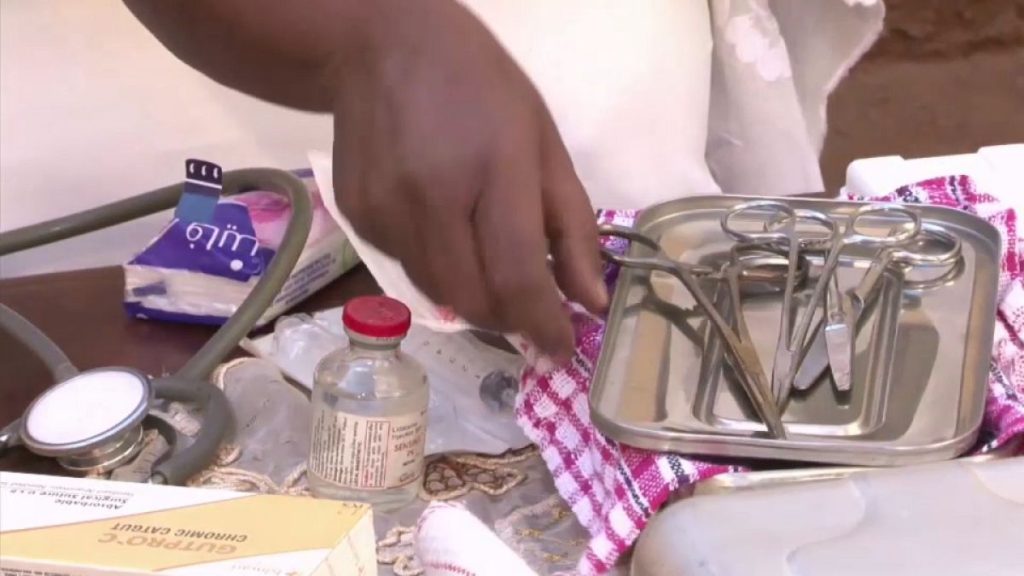Summarize this content to 2000 words in 6 paragraphs This article was originally published in French
Female genital mutilation is a reality in Europe, with over 600,000 girls and women having been subjected to it.
Female genital mutilation (FGM) is a reality in Europe: 600,000 girls and women, mainly from Africa and Asia, have been been subjected to it. Worldwide, the figure is at 230 million.FGM refers to the partial or total removal of the external female genitalia for non-medical reasons.Various avenues for preventing this form of sexist and sexual violence were explored at a conference organised at the European Parliament last week.”It would be wrong to say that female genital mutilation is not practised in Europe. It can happen anywhere,” Valerie Lolomari, founder of Women of Grace UK, told Euronews.”People can have it done in their countries before they move over. People can be imported back to their countries to get cut. Some families are even importing older cutters from their country to come get cut in Europe. It can happen anywhere. That’s the bottom line. It’s a very harmful practice. It can happen anywhere. It needs to be eradicated,” she explained.Despite the progress made in breaking the taboo and encouraging people to speak out, there is still a long way to go before changing people’s attitudes.What has worked so far is the movement of survivors themselves,” says Comfort Momoh, a public health expert based in the UK. “It has to be survivor-led. They’re doing fantastic work within their community. They’re going to schools to raise awareness,” she adds.However, superstition and social pressures remain deeply entrenched in some societies, while families who oppose the practice risk becoming ostracised.”I do think that we are starting to really wake up and to know that something about it is wrong. Maybe not everyone, not every girl knows specifically what is wrong about it, but a lot of them, if not all of them, don’t want this practice to be done to them” Jasmina El Shouraky, a Youth in Action (Y-ACT) ambassador for Italy, told Euronews.Given the scale of the issue, Italian MEP Cristina Guarda is calling for an increase in awareness of FGM in Europe, particularly among education and healthcare staff.”It is absolutely necessary to train medical staff because in the emergency rooms of hospitals, in the daily care by specialists, it is necessary to recognise the signs of violence, to report it and not leave women alone. And therefore better manage their health security, but also their safety, tranquillity and psychological well-being,” Cristina Guarda, MEP (Greens/EFA), told Euronews.Last year, the European Union adopted a directive on violence against women that requires member states to include FGM as a specific criminal offence in their penal codes.For its part, the UN is calling for the total elimination of FGM by 2030.
Keep Reading
Subscribe to Updates
Get the latest creative news from FooBar about art, design and business.
© 2026 Globe Timeline. All Rights Reserved.












